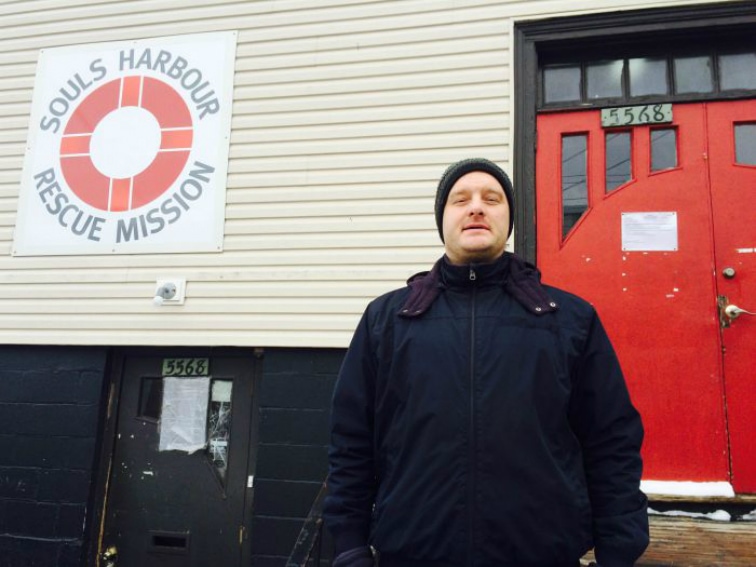KJIPUKTUK (Halifax) – The people I talk to and have written about, the ones that hang out at soup kitchens and drop-ins, tell me that it’s not only poverty that causes them to feel isolated. Other causes include things that happened to them even before they lived a life of poverty.
Of course when the drop-ins are closed they’re often alone. They suffer social isolation during the times in the run of a week when these drop-ins and soup kitchens are not open. When these places are not open, including evenings, weekends and holidays, they feel pretty much lonely.

This is why, if it wasn’t for these places, they would experience more social isolation. During their lives of living in poverty, their ability to interact with the world went downhill and became a challenge.
Isolation can affect anybody, not just poor people
Even though people living in poverty suffer social isolation in great volumes, from what I learned a person does not necessarily have to be living in poverty to suffer social isolation.
When we think of the term social isolation, we often also think of the elderly. In reality social isolation can be experienced by any individual of any age. However symptoms may differ by age group. Since I starting writing for the Nova Scotia Advocate, I have tackled topics such as ESIA and the need to reform, poverty, and Hey Ho Ho Mental Health Stigma has got to go. Social isolation, which I am writing about in this article is strongly related to both poverty and mental stigma.
In many cases people developed social anxiety after they became unemployed. In several cases things happened to them during their lives before they were struck by poverty that made them want to live their lives in social isolation.
- They have a history of not being able to maintain socially acceptable healthy relationships with friends and family. In a lot of cases it is that their family and friends don’t understand their mental illness and disabilities.
- Some tell me they are embarrassed by their disabilities or mental health issues. This embarrassment makes them have a tendency to socially isolate themselves, to avoid general social interactions. They tell me their only reason for coming to the drop-ins and soup kitchens is because getting the free meals helps them with their budgeting.
- Some have experienced the loss of a spouse.
Feelings such as fears of abandonment, being alone in the world, and not having the ability to keep friendships going are all more issues people mentioned to me while on this subject.
Being a non-drinker of alcohol has a lot of health benefits
Ok, before going any further, let’s have a look at people who name drinking problems as the reason they keep themselves socially isolated.
When you have mental health issues, physicist often prescribe medication, where they should not be drinking alcohol because their medications and alcohol don’t mix.
What these people tell me is that they feel they cannot have a normal relationship with their middle class friends if they are not allowed to drink alcohol. They also rather drink alcohol than attend AA meetings. These people tell me that attending AA meeting, at least in their opinion, makes them more depressed than social isolation does.
These types of excuses relating to any alcohol problems are concerning. I say this because these people could potentially need help and not understand that they need help. Perhaps people who use these types of excuses are abusing alcohol and not realizing it. What these people do not realize is that being a non-drinker of alcohol had a lot of health benefits. Also, what these people do not realize is the opportunity to attend AA meetings is a social opportunity for them to get out and meet others who also have problems with alcohol.
Can’t afford transportation
Anyways, people I talk to especially say that their experiences of being on welfare have brought them to live a dead-end life. It may not be only poverty that causes isolation, but it is a big part of it.
For instance, people cannot always afford transportation to attend community events. Keep in mind, in Nova Scotia when you are on income assistance it is difficult to qualify for bus passes. Also, the reality is that you cannot afford expensive registration fees to join fitness centers, etc.
Can’t afford a telephone
The situations people deal with are often triggered by things which they have no control over. This could include others choosing to end friendship with them, and becoming unemployed.
Having no communication with family, acquaintances, friends, and others who care about you or avoiding any contact with other people are what socially isolated people do. This causes mental health issues.
This is exactly what the Department of Community Services encourages when it doesn’t want to pay for a telephone for people on social assistance.
Things you can do yourself
Most older people want to spend time with other people their own age. What would help cure social isolation are all ages community social events and community social groups. This idea would have benefit to all ages that are experiencing social isolation.
Some other ideas include:
- Starting and joining local book clubs.
- Involvement in community action.
- Joining community sport teams and sporting groups.
- Membership of local churches.
- Creating peer support groups within your community
- Creating and join writer’s circles.
- Attend AA meetings.
If you can, please support the Nova Scotia Advocate so that it can continue to cover issues such as poverty, racism, exclusion, workers’ rights and the environment in Nova Scotia.




Great job Kendall, another enlightening article you have written.
Excellent article Kendall, made complete sense.
I’m impressed, Kendall! Great job and keep up the good work. Glad I found this.
Well said Kendall. Good work.
Thanks for your comments all! They mean a lot to me!